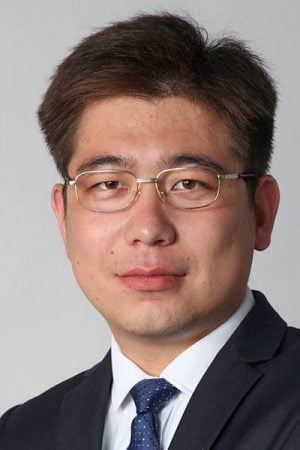Candidates for the computer science tenure-track faculty position openings in the College of Computing will be visiting campus this semester, including Bo Zhang.

Bio
Bo Zhang is a Post-Doctoral Research Associate in the Scientific Computing and Imaging (SCI) Institute at The University of Utah. He received his Ph.D. in Computer Science from The University of Utah in 2024, under the supervision of Prof. Manish Parashar. He received his bachelor’s degree in telecommunications engineering from Beijing University of Posts and Telecommunications in 2018. His research interests include high-performance computing, extreme-scale data management, in-situ processing, and heterogeneous digital twin workflow. In the past five years, he primarily worked on the workflow-level I/O abstraction for GPU-dense supercomputers and the convergence of workflow infrastructure for hyper-scale data centers and HPC centers. He received the 2023 Euro-Par Best Paper Candidate award and the HPCwire 2024 Editors’ Choice Awards ‑ Best Use of High Performance Data Analytics and Artificial Intelligence for the National Data Platform (NDP) project.
Candidate: Bo Zhang
Date and time of visit: Friday, Feb. 14, 2025, 3 p.m. ET, followed by a social hour in Rekhi 218
Location: Rekhi 214
Abstract
Coupling Heterogeneous Components into Large-Scale Scientific Workflow
Emerging simulations running at extreme scales on leadership-class High-Performance Computing (HPC) systems enable the scientific discoveries that previously were out of reach by producing and analyzing massive volumes of data. Their need to process data more frequently than the temporal resolution of checkpoints in storage, along with the increasing disparity between HPC clusters’ floating point operation rate and I/O bandwidth, motivate the use of in situ workflows.
Unfortunately, although the extreme-scale computing landscape is increasingly dominated by HPC systems equipped with GPUs, coupled in situ workflows still cannot productively leverage the computing power of GPU-accelerated HPC clusters due to two outstanding heterogeneity challenges: interoperability across heterogeneous execution backends and performance Portability.
Moreover, recent discussions about the convergence of Hyper-Scale Data centers and High-Performance Computing infrastructure, as well as the emergence of digital twin workflows that incorporate edge devices, introduce unprecedented heterogeneity challenges in cross-site Computing.
Since in situ workflow consists of several scientific applications as its components that exchange shared data through interconnects, these challenges are not limited to individual components but also extended to the I/O between components.
In this talk, I’ll introduce an interoperable and portable coupling infrastructure that manages the heterogeneity in hybrid GPU-CPU in situ workflows. Specifically, it (i) automates the on-the-fly data layout conversions for heterogeneous applications to maintain the overall workflow performance, (ii) optimizes the inter-application data movements using GPUDirect RDMA, and (iii) maintains portable inter-application data movement performance across HPC platforms with heterogeneous hardware configuration. In addition, I will also share insights on coupling inter-site scientific workflows across HPC, cloud, and edge and building data-driven control-centric digital twin workflows upon these heterogeneous components.
About the College of Computing
The Michigan Tech College of Computing, established in 2019, is the first academic unit in Michigan dedicated solely to computing, and one of only a handful such academic units in the United States. The college is composed of two academic departments. The Computer Science department offers four bachelor of science programs in computer science, cybersecurity, data science, and software engineering; four master of science programs in applied computer science, computer science, cybersecurity, and data science; and a doctoral program in computer science. The Applied Computing department offers four bachelor of science programs in cybersecurity, electrical engineering technology, information technology, and mechatronics; two master of science programs in health informatics and mechatronics; and a doctoral program is in computational science and engineering.
Questions? Contact us at computing@mtu.edu. Follow the College of Computing on Facebook, Instagram, LinkedIn and Twitter.